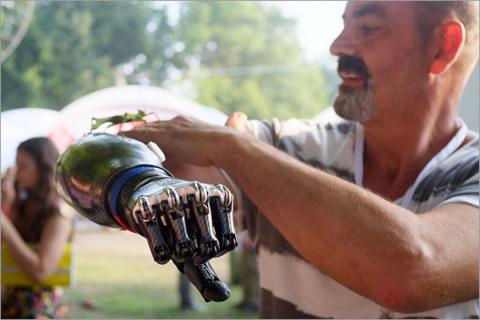The world’s most advanced prosthetic is changing lives
"I was too busy losing my mind to realize that I'd also lost my arm," he tells the audience at WIRED Health 2015. In 2012 he was fitted with the bebionic3. The improvement in the quality of his life, he says, was remarkable. "I feel my thumb lift before the prosthetic moves, it's almost as if I'm reconnecting," he explains. "Overall, the effect on my life since I've had this has been extraordinary."
From being stared at and laughed at, Ackland says he has now been accepted. He describes shaking hands with people using his bionic hand and seeing a genuine smile. "I see that smile as a sign of acceptance for who I am. Nobody ever asked to shake my hook." For many amputees, the improvement in quality as seen by Ackland will remain a dream. The prosthesis is expensive and few NHS limb-fitting centres offer it. He said the technology had persuaded him that "life-changing doesn't really have to be life-ending".
He now has a variety of grips and can even tie his shoelaces. If the NHS were to make advanced prosthetics available to more amputees, Ackland says, their lives could also be changed for the better.
James Temperton

